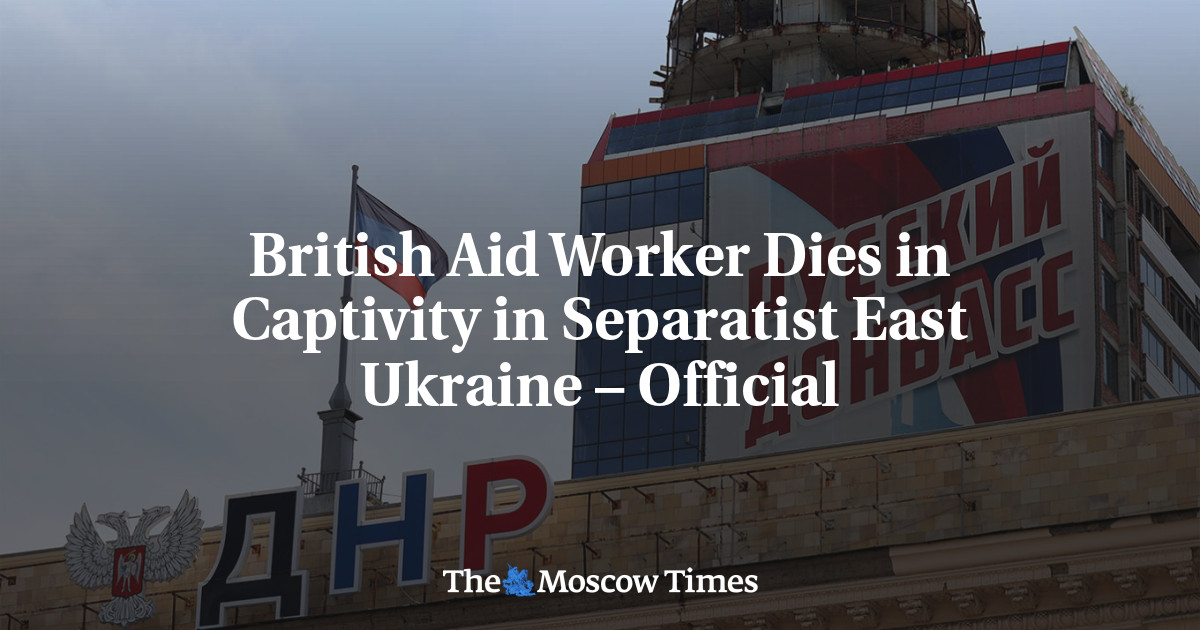
Paul Urey, a British aid worker captured in Ukraine by pro-Russian forces, has died in captivity, an official in the self-proclaimed Donetsk People’s Republic (DNR) said Friday.
Urey, 45, was captured near the occupied southern Ukrainian city of Zaporizhzhia in April. He and fellow British aid volunteer Dylan Healy were charged with “mercenary” activity, an offense punishable by death in the DNR.
He died Sunday, DNR human rights ombudsperson Daria Morozova said in a post on the Telegram messaging app, citing chronic illness and stress as the factors behind his death.
“During his first medical examination, Paul Urey was diagnosed with a number of chronic illnesses, including insulin-dependent diabetes, respiratory system failure, kidney failure and several cardiovascular illnesses. Given these diagnoses and the stress, he died on July 10,” Morozova said.
“From our side, he was given the necessary medical assistance despite the grave crimes he committed,” she said.
Britain voiced alarm over the announcement.
“They’re clearly alarming reports and our thoughts are with his family and friends,” a Downing Street spokesman said.
British Foreign Secretary Liz Truss said Moscow bears “full responsibility” for Urey’s reported death.
“I am shocked to hear reports of the death of British aid worker Paul Urey while in the custody of a Russian proxy in Ukraine,” she said. “Russia must bear the full responsibility for this.”
An international legion backing Kyiv told the Interfax-Ukraine news agency that Urey was an aid worker, not a professional soldier as DNR authorities claimed.
“We are saddened by the news of Mr. Urey’s death… He did not fight in Ukraine. He was an employee of a humanitarian organization,” the press service of the International Legion for the Defense of Ukraine said.
Urey’s mother Linda also insisted her son went to Ukraine to help with the humanitarian crisis sparked by Moscow’s invasion of Ukraine in late February.
Linda Urey had previously raised concerns over her son’s medical condition, and called on the British Foreign Office and the Presidium Network crisis group to help secure his release.
He is “type 1 diabetic and needs his insulin. We have asked the Presidium Network to help us and also the Foreign Office to help as well. We pray for him and hope he is safe,” she said in a statement in April.
Urey appeared in handcuffs on Russian television in May, telling the interviewer that he went to Ukraine because he didn’t believe the British media’s portrayal of the Russian invasion.
His mother later said the confessions were made under duress.
“I know my son like every mother, and this is not him being natural.”
AFP contributed reporting.